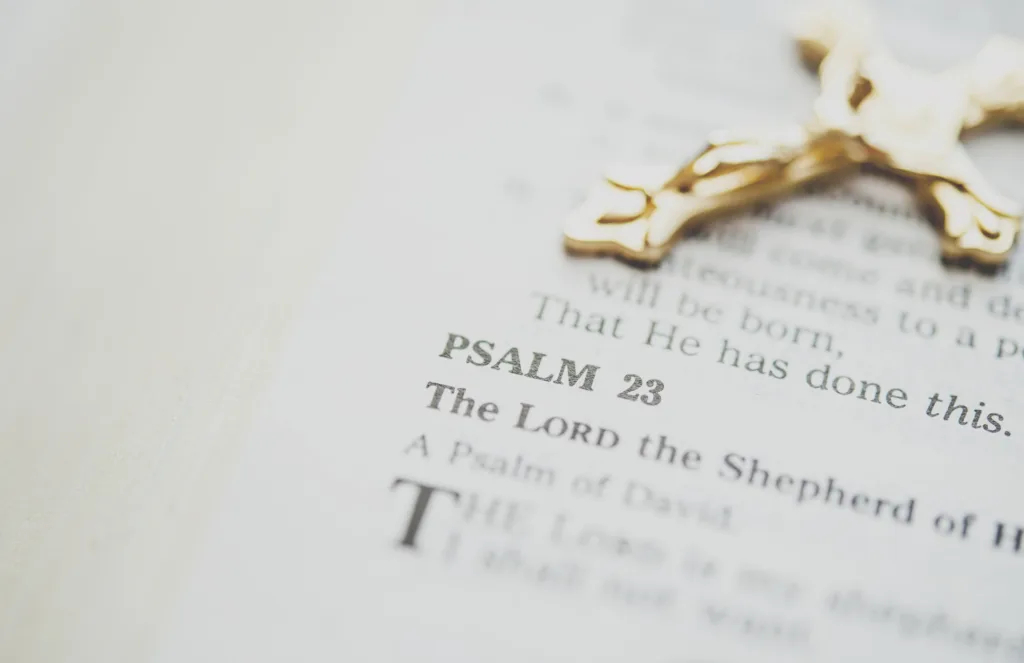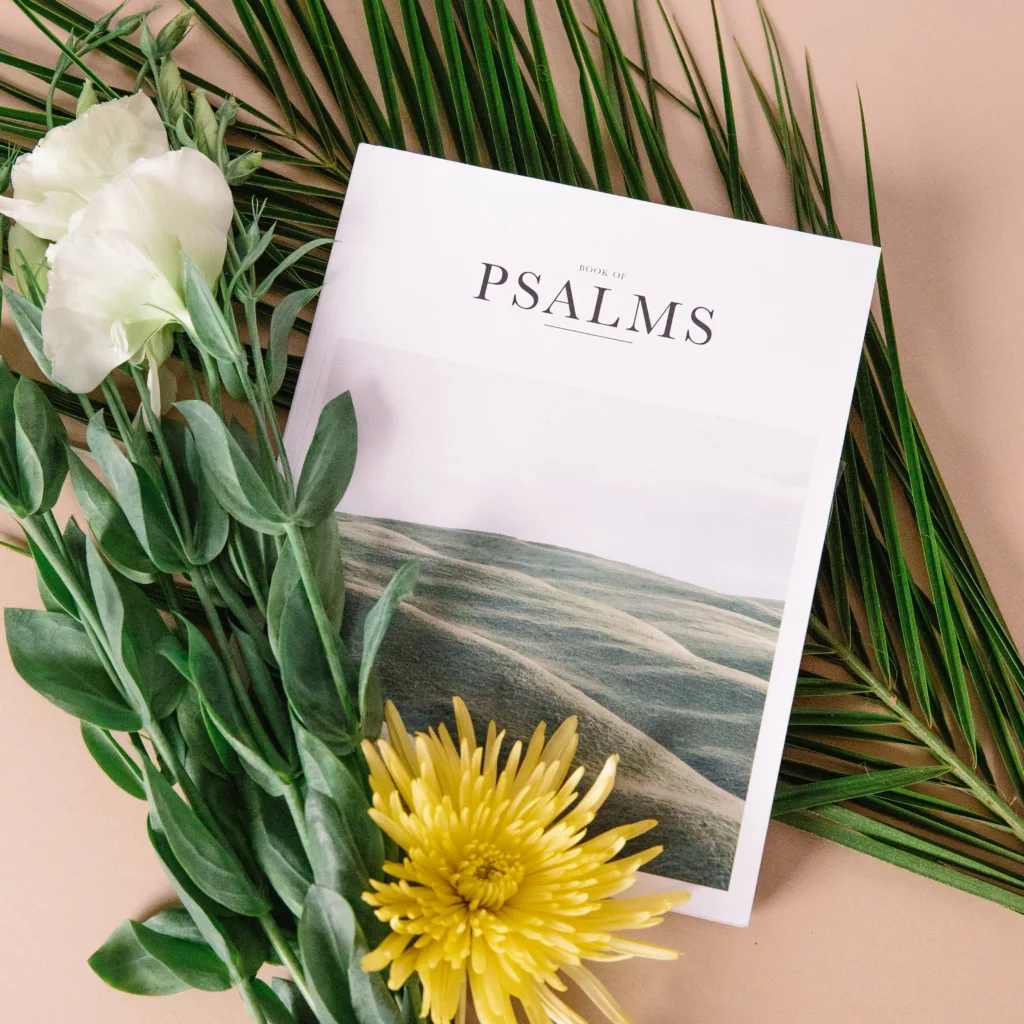The book of Psalms is one of the most beloved and frequently read books of the Old Testament. It is a collection of 150 individual hymns, prayers, and poems that were composed by various authors over a period of several centuries.
Of the 150 psalms, 73 are attributed to King David, who is known for his deep devotion to God and his poetic skill. David’s psalms cover a wide range of emotions, from praise and thanksgiving to lament and despair. He often uses vivid imagery to describe his experiences and his relationship with God, and his psalms are some of the most beautiful and powerful in the entire collection.
Other authors who contributed to the book of Psalms include Asaph, who wrote 12 psalms, the descendants of Korah, who penned 10, Solomon, who wrote one or two, and Ethan and Heman the Ezrahites, who were responsible for two others. The remaining psalms do not contain information about ther authors.
The psalms are divided into several different categories, including hymns, communal laments, individual laments, individual thanksgiving psalms, and royal psalms. Each category has its own unique style and purpose, but all are centered on praising God and expressing the writers’ deep faith and trust in Him.
One interesting fact about the book of Psalms is that there is a short psalm called Psalm 151 that is found in most copies of the Septuagint but not in the Masoretic Text of the Hebrew Bible. This psalm is attributed to David and is considered supernumerary, as it does not have a number affixed to it.
The book of Psalms is a rich and diverse collection of hymns, prayers, and poems that express the deep faith and devotion of the writers. It is a testament to the power of God and His love for His people, and it continues to inspire and comfort readers today.
Number of Psalms in the Original Collection
The Book of Psalms is a collection of 150 poetic and hymnal compositions that were originally written in Hebrew. The exact date of their composition is uncertain, but they were likely written over a period of sevral centuries, from the time of King David to the post-exilic period.
Out of the 150 psalms, the authorship of some is attributed to specific individuals. King David is credited with composing 73 psalms, while Asaph wrote 12 and the descendants of Korah wrote 10. Solomon, Ethan, and Heman the Ezrahites wrote one or two psalms each. This accounts for a total of 101 psalms with known authors.
The remaining 49 psalms do not contain information about their authors. It is possible that some of these psalms were also written by David or other known authors, but their authorship remains uncertain.
So to answer the question, there are 150 psalms in the Book of Psalms, with 101 of them having known authors and the remaining 49 being of uncertain authorship.

The Existence of Psalm 151
There is a Psalm 151, but it is not included in the Hebrew Bible. This psalm is found in most copies of the Septuagint, which is the Greek translation of the Hebrew Bible. The Septuagint was widely used in the early Christian church and is still used by some Christian denominations today.
Psalm 151 is a short psalm that is attributed to King David. The title given to this psalm in the Septuagint indcates that it is supernumerary, as no number is affixed to it. This means that it is an additional psalm that is not part of the standard numbering system used for the Book of Psalms.
The content of Psalm 151 is a personal reflection by David on his life and his relationship with God. The psalm opens with David proclaiming his love for God and his gratitude for the blessings that God has bestowed upon him. David then reflects on his upbringing as a shepherd and how his experiences in the field prepared him for his role as king.
The psalm concludes with David expressing his hope that his words will be heard by future generations and that they will continue to find inspiration in his story. While Psalm 151 is not included in the Hebrew Bible, it has been embraced by many Christians as a powerful expression of faith and devotion to God.
Types of Psalms
The Book of Psalms, a collection of 150 religious songs and poems, is one of the most beloved books of the Bible. These psalms are categorized into five different types, namely Hymns, Communal Laments, Individual Laments, Individual Thanksgiving psalms, and Royal Psalms.
Hymns are the most common type of psalms, and they are songs of praise and worship to God. They are usually characterized by their joyful and celebratory tone and often cotain descriptions of God’s power and greatness.
Communal Laments are psalms that express the community’s sorrow and grief over difficult situations such as war, famine, or oppression. They often begin with a cry for help and end with a statement of trust in God’s deliverance.
Individual Laments are similar to communal laments, but they are more personal in nature. They express an individual’s pain and suffering from personal tragedies such as illness or betrayal. They typically follow a similar structure as communal laments.
Individual Thanksgiving psalms are psalms of gratitude that are offered by individuals who have experienced God’s goodness and deliverance in their lives. They often recount the specific ways in which God has shown mercy and kindness to them.
Royal Psalms are hymns that celebrate the reign of God and the king of Israel. They often contain references to the Davidic dynasty and the promise of a coming Messiah.
The Book of Psalms contains a diverse range of expressions of human emotion and experiences, including praise, lament, thanksgiving, and celebration, and it continues to be a source of comfort and inspiration for people of faith around the world.
Number of Psalms Written by David
According to the biblical text, it is believed that David wrote approximately 73 of the 150 Psalms found in the Book of Psalms in the Old Testament. However, it is possible that he wrote even more, as some psalms are anonymous or attributed to other authors. Regardless, David’s contributions make up a significant portion of the book and his psalms are knwn for their heartfelt expressions of praise, lament, and trust in God. The themes of David’s psalms cover a wide range of topics, including repentance, thanksgiving, and declarations of God’s sovereignty. David’s contributions to the Book of Psalms continue to inspire and comfort readers to this day.

Conclusion
The book of Psalms is a collection of 150 poems that express a wide range of human emotions and experiences. They were written by various authors, with David being responsible for the majority of them. Each psalm is unique in its message and purpose, but they all share a common theme of praising and worshiping God. The book of Psalms has been a source of comfort and inspiration for believers throughout the ages, and its relevance and power continue to endure. Whether we are facing trials and tribulations or rejoicing in times of abundance, the psalms provide a way for us to connect with God and express our deepest thoughts and feelings.
